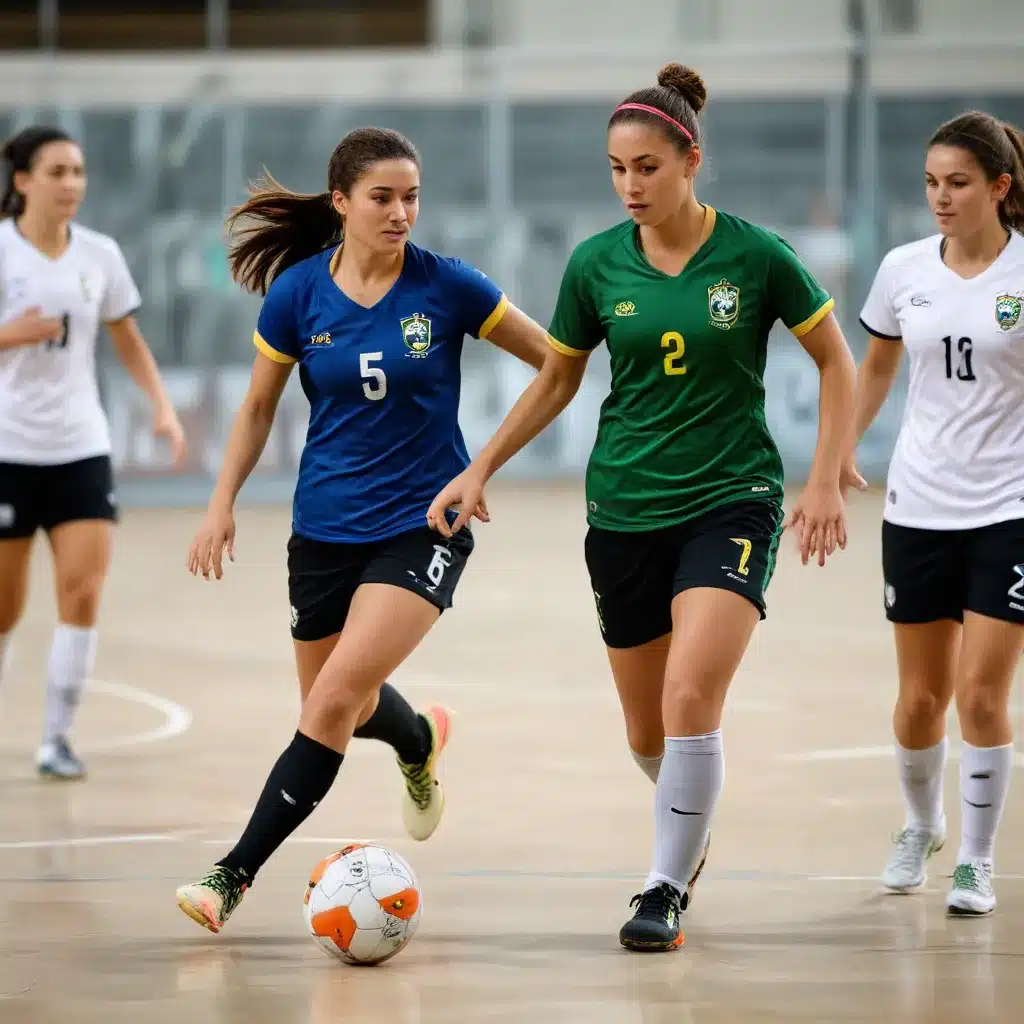
History of Futsal in Brazil
Futsal, the captivating indoor sport born from a fusion of soccer and street football, has long been synonymous with the vibrant culture of Brazil. Its origins can be traced back to the 1930s in Uruguay, but it was in the gyms and courts of Brazil that the game truly flourished, becoming a beloved pastime and a crucial training ground for some of the country’s greatest football talents.
The appeal of futsal in Brazil lies in its emphasis on skill, creativity, and lightning-fast decision-making. The smaller playing area and fewer players on the court demand a level of technical mastery and tactical awareness that has become the hallmark of the Brazilian game. As the sport’s popularity surged, it evolved into a true spectacle, captivating audiences with its dazzling displays of individual flair and relentless teamwork.
Women’s Futsal in Brazil
Amidst the rich tapestry of Brazilian futsal, the women’s game has emerged as a captivating and rapidly growing force. The emergence of women’s futsal in Brazil can be traced back to the late 1980s, when the sport began to gain traction among female players and enthusiasts. Initially, the women’s game faced challenges in terms of recognition and resources, but the passion and determination of the pioneers of the sport paved the way for its eventual rise to prominence.
One of the key figures in the development of women’s futsal in Brazil is Raquel Benetti. A former player and now a respected coach, Benetti has been instrumental in nurturing the growth of the sport, championing the cause of women’s futsal and inspiring a new generation of players. Under her guidance, teams like Corinthians and Ferroviária have become powerhouses in the domestic league, showcasing the remarkable talent and athleticism of Brazil’s female futsal stars.
Technique and Athleticism in Brazilian Futsal
The hallmark of Brazilian futsal, both in the men’s and women’s game, is the seamless blend of technical prowess and physical athleticism. The smaller playing area and the rapid pace of the game demand an exceptional level of ball control, spatial awareness, and split-second decision-making from the players. Brazilian futsal stars are renowned for their ability to execute intricate dribbles, audacious flicks, and pinpoint passing, all while maintaining a relentless work rate and a fierce competitive spirit.
One player who epitomizes this fusion of technique and athleticism is Amandinha, a trailblazer in the women’s futsal scene. With her mesmerizing ball skills, lightning-quick reflexes, and tireless work ethic, Amandinha has become a role model for aspiring futsal players, both in Brazil and around the world. Her ability to seamlessly transition between creative flair and defensive grit has made her a standout performer in the domestic league and on the international stage.
The Blend of Skill and Fitness
The tactical nuances of Brazilian futsal are a testament to the sport’s unique demands. With the limited space and constant pressure on the ball, teams must develop a deep understanding of positional play, off-the-ball movement, and the art of creating and exploiting space. Coaches in Brazil have mastered the art of drilling their players in the intricacies of the game, ensuring that their teams are not only technically proficient but also tactically astute.
Alongside the tactical acumen, the physical demands of futsal in Brazil are immense. Players must possess a remarkable level of fitness, endurance, and agility to thrive in the high-intensity environment. The ability to recover quickly, make explosive bursts of speed, and maintain a relentless pressing game are all essential attributes for success in the Brazilian futsal landscape.
The Impact of Futsal on Brazilian Football
The influence of futsal on the development of Brazilian football cannot be overstated. The sport has served as a crucial training ground for countless legendary players, shaping their technical abilities, tactical awareness, and mental resilience. Iconic figures like Ronaldinho, Neymar, and Marta have all credited futsal as a significant factor in their rise to stardom, highlighting the sport’s ability to nurture the skills and mindset required to excel at the highest levels of the beautiful game.
Beyond individual player development, the impact of futsal on the broader Brazilian football landscape is equally profound. The sport’s emphasis on close control, quick decision-making, and team cohesion has influenced the tactical approaches and playing styles adopted by Brazilian clubs and national teams. The seamless integration of futsal principles into the outdoor game has contributed to Brazil’s enduring legacy as a footballing powerhouse, renowned for its flair, creativity, and relentless winning mentality.
As the women’s futsal scene in Brazil continues to grow in stature and popularity, the sport’s transformative potential is poised to have an even greater impact on the development of the women’s game. The fusion of technique and athleticism that defines Brazilian futsal is set to inspire a new generation of female footballers, who will undoubtedly leave an indelible mark on the sport both in Brazil and around the world.
Futsal, with its unique blend of skill, speed, and strategy, has become an integral part of Brazil’s rich football heritage. From the vibrant courts of the past to the gleaming stadiums of the present, the spirit of futsal continues to shape the country’s footballing landscape, fueling the dreams and aspirations of players and fans alike. As the women’s game continues to flourish, the future of Brazilian futsal shines bright, promising an even more captivating and dynamic chapter in the sport’s enduring legacy.

